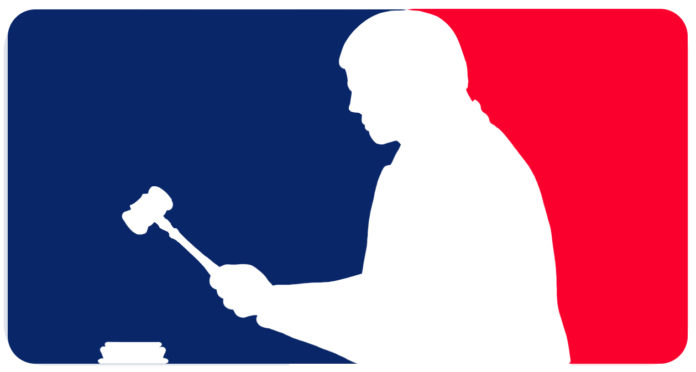Chicago Cubs shortstop Addison Russell has been placed on administrative leave following a blog post from his ex-wife Melisa Reidy-Russell detailing abuse during their marriage, according to ESPN. If the claims are true, this is an opportunity for Major League Baseball to do the right thing and completely remove Russell from the league. Domestic abuse should never be tolerated, and it should result in a more severe punishment than just a slap-on-the-wrist with leaves or game suspensions.
Russell’s leave expired Sunday, but there has been no word as to whether he has been suspended.
Reidy-Russell said in an interview with ESPN that sharing her story was partly inspired by the #MeToo movement. She says she’s found herself again, which is part of the message she says she’s trying to convey to women who feel overwhelmed in their situations.
Other sports leagues, such as the National Football League, have recently had high-profile cases regarding domestic abuse. In 2016, the NFL suspended Cowboys running back Ezekiel Elliott for six games for violating the league’s personal conduct policy as it relates to domestic violence. However, there seems to be no regulation when it comes to suspensions — some players get significantly longer suspensions than others, even when there seems to be less evidence involved, as in the Elliott case.
On Aug. 21, 2015, the MLB announced that it would get “tough” on domestic assault. However, it only said: “The Commissioner will decide on appropriate discipline, with no minimum or maximum penalty under the policy. Players may challenge such decisions to the arbitration panel.”
Two months later, on Oct. 31, 2015, police responded to a call at the Maui Four Seasons Resort in the room of Jose Reyes of the Colorado Rockies and his wife. She told police that Reyes “yanked her off the bed, pushed her, grabbed her throat and shoved her into a sliding glass door that led to the balcony.” She was treated at the scene and taken to a nearby hospital. Reyes was arrested and placed on paid administrative leave. In May 2016, he received a 51-game suspension. This prompted Kristie Ackert at the New York Daily News to put the penalty in relative terms — specifically, compared to the 80-game suspension for the use of performance-enhancing drugs:
“While Reyes’ case should serve as an example of how seriously MLB is taking domestic violence, the league instead sent the message that threatening violence and putting your hands on another human being is less serious than testing positive for a performance-enhancing drug. It’s the wrong message. It should be at least 81 games,” Ackert said.
Nashville Predators recently suspended Austin Watson for 27 games (one-third of the season) after he was charged with domestic abuse and pleaded no contest. This is still not enough.
Suspending players does not get them out of the league. This means when fans are cheering on their favorite teams, they’re knowingly cheering on abusers. In order to show women their physical well-being and basic rights are prioritized, the MLB and other sports leagues need to create a consistent policy regarding how to handle domestic abuse cases. By allowing regulation fluctuation a case by case basis, the MLB is sending the message that women’s health is less important than the use of performance enhancing drugs and a wide variety of other actions that receive harsher sanctions than being found guilty of domestic abuse.
Hold people accountable for their actions. Athletes should receive sanctions that are appropriate due to the offense committed, and we should encourage sports leagues to hold athletes to a higher standard through calls for accountability on social media.






